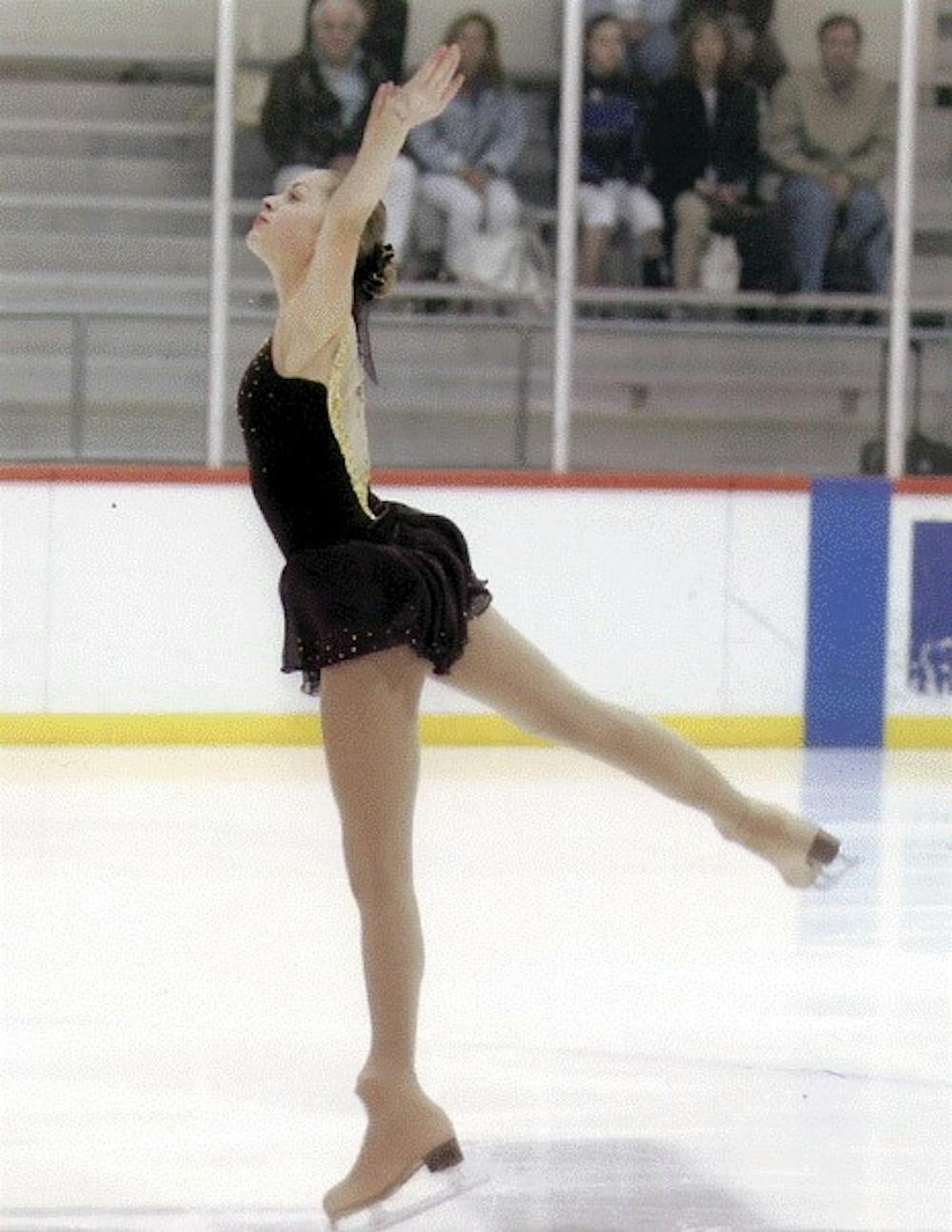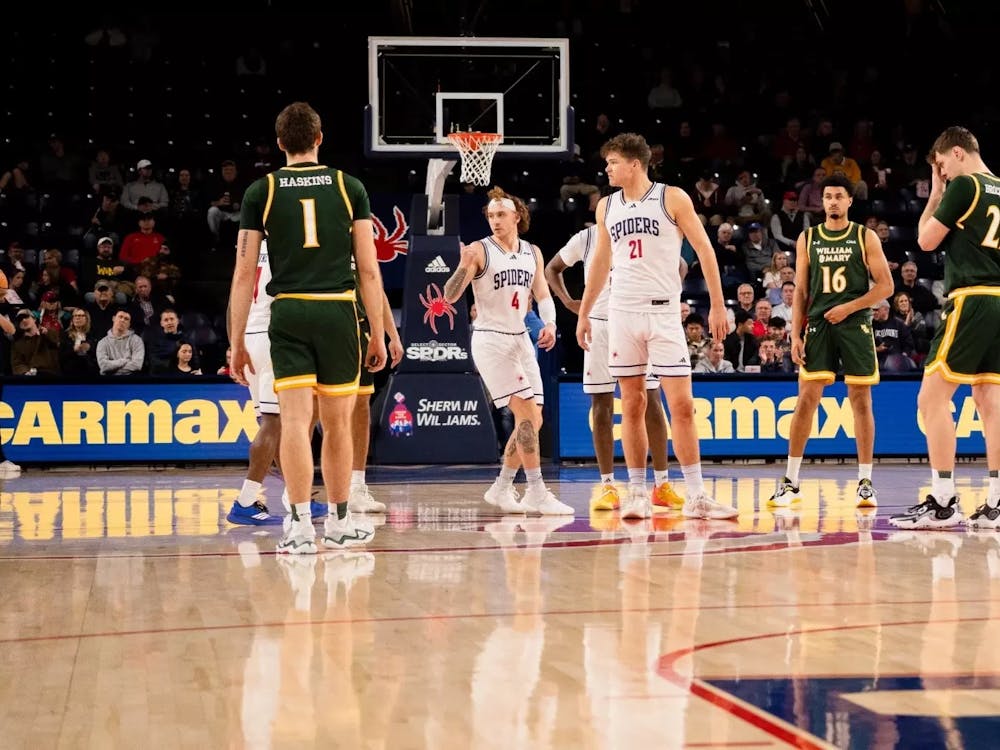University of Richmond sophomore Amanda White always asked her parents to let her skate more, but in high school she had to convince her doctors, too.
White started taking figure skating lessons when she was 8, after watching Tara Lipinski win the gold medal at the 1998 Winter Olympics in Nagano, Japan. Her peers had already been skating for years, and she tried to catch up with them.
"She was very passionate when she was younger, very hard worker, very good listener," said Lynne Massone, her coach from her hometown of Princeton, N.J. "She was one of those kids that honestly accomplished a lot, pretty much because she wanted it so badly."
White moved from Princeton to Westchester County, N.Y., in seventh grade. That was when she was most competitive, practicing twice a day Monday through Saturday, starting at 6 a.m.
"I used to not set my alarm," her mother, Diane, said. "I used to hope that maybe she'd just sleep through it, and she never did."
White traveled to about 12 competitions a year, she said.
"I just love to perform," she said. "You really feel like an athlete but you also get the artistic side."
Ninth grade was going to be White's best year, she said, but her joints started to hurt in December and January. She often hid her symptoms from her parents, but said the pain became too much for her to bear.
"I remember one morning I just broke down and I couldn't get down the steps," White said.
White met with orthopedic surgeons throughout the spring, her mother said, but the pain would subside without a conclusive diagnosis.
"It went through her back, to her knees, to her feet, to her wrists, to her hands," her mother said. "It was like a moving target."
Enjoy what you're reading?
Signup for our newsletter
Six months after the pain had started, doctors told White she had rheumatoid arthritis, an auto-immune disease that caused her body to weaken her joints.
"I think the hardest part about this is that nobody understands rheumatoid arthritis," White's mother said. "Everybody thinks it's an old-person disease. There are more kids with rheumatoid arthritis than juvenile diabetes."
White had to take a year off from skating to focus on treating the arthritis, and said she had thought she might never skate again.
"We ended up moving back to Princeton," White said. "I had a really close-knit group of skating friends and it was going to be hard for me not to go to the rink and see them."
White went through a phase where she tried new sports, but said all she wanted to do was get back to skating. She did, during the summer after 10th grade, but she said it had been different.
"I've always loved skating," White said. "That will never change. I was just so competitive with it. ... It's a lot of times more rewarding and more enjoyable now because I don't have that pressure on myself."
Massone said White needed to work hard to relearn the more difficult moves and work toward her goal of becoming a senior-level skater. The senior level is the last of a series of tests of figure skating skills, White said, and those who pass the test receive a gold medal in skating.
White had to take the test seven times — the judges took off points for stiffness, an effect of the arthritis — but she did become a senior-level skater. Massone, whose cousin and sister-in-law also have RA, said she was amazed by how much White was able to accomplish.
"I just don't think she thinks of herself as different or like she should be given special privileges because she has a chronic illness," Massone said. "She doesn't let her condition define her."
White can now skate three or four times a week, as long as each practice is less than 90 minutes. To treat the RA, she said, she takes one pill per day and one shot per week.
In high school, she got involved with her local Arthritis Foundation chapter and met Kelly Rouba, who was diagnosed with RA when she was two. White said Rouba, 29, had served as a mentor to her.
Rouba, a freelance journalist, wrote a book titled, "Juvenile Arthritis: The Ultimate Teen Guide." The first chapter is about White, and Rouba said she also mentioned White throughout the book.
"My goal was really to write a comprehensive guide or self-help guide to help those living with juvenile arthritis and their family members and caregivers and friends," Rouba said.
White wrote about their relationship in her college essay, Rouba said. White originally wanted to go to a northern school and join a figure skating team, but Rouba suggested she visit Richmond, which her brother, Kevin, attended from 2001-05.
White said that when she visited Richmond, it had been everything she wanted. She is pre-med and last year joined SpinnURs, a sorority and other clubs, but she said her goal had been to start a figure skating club at Richmond.
Last year, she and a friend skated at Richmond Ice Zone, but White said they had to share cabs there and there hadn't been much ice time available. This year, White brought a car to campus and knows two freshmen who love to skate.
She said had been trying to find a rink where the four could practice. Although she can't skate as often as she used to, White said she felt lucky she could teach skating and skate for fun.
"Some people, when I explain this whole complicated story, they feel bad for me," White said. "I don't think about it that way at all. ... The way I skate now is so much healthier, so much better."
Contact staff writer Barrett Neale at barrett.neale@richmond.edu
Support independent student media
You can make a tax-deductible donation by clicking the button below, which takes you to our secure PayPal account. The page is set up to receive contributions in whatever amount you designate. We look forward to using the money we raise to further our mission of providing honest and accurate information to students, faculty, staff, alumni and others in the general public.
Donate Now



